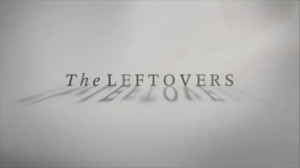TV Review: The Leftovers

HBO’s new series The Leftovers is a show about what is presumably the Rapture. But wait, fellow humanists! Don’t tune out just yet, because it deals with this seemingly supernatural event in a thoroughly humanistic manner.
Based on the Tom Perrotta novel of the same name (Perrotta co-created the series with Damon Lindelof of Lost fame), The Leftovers picks up three years after 2 percent of the world’s population mysteriously disappears without a trace on October 14th. No dead bodies, no goodbyes, just poof, gone. The show follows the residents of the fictional small town of Mapleton, New York, as they try to grapple with this monumental and enigmatic event, known as the Departure. Some think God was rewarding the pious, some think he was punishing the sinners, some lose their faith in God altogether, but most simply get on with their lives, trying to cope with the grief, anger, and loss. And boy, does this show supply grief, anger, and loss in the boatloads. The Leftovers is dark. Not in recent memory has a show dealt with loss so candidly and unrelentingly. It is downright difficult to watch at times.
Justin Theroux plays Chief of Police Kevin Garvey as one big ball of tension. He spends most of the show looking dark and gloomy and occasionally punching picture frames and shooting dogs. He didn’t lose anyone on the 14th, but his wife joined a cult called the Guilty Remnant that plagues the town. The members wear all white, take vows of silence, and chain smoke cigarettes. It’s their way of reminding everyone that life has been irrevocably changed, that you can’t just forget something so monumental and move on. Kevin’s rebellious daughter, Jill, copes with her mother’s abandonment and the shock of the Departure by drinking and doing drugs, stalking people, and participating in debauched teenage sex parties. Kevin’s son is somewhere in Nevada, far away from his father, working for a prophet-like figure named Holy Wayne who claims he can hug the pain out of people and keeps a harem of underage Asian girls. The Garvey family is at the center of the drama, but there is a great cast of supporting characters (including Liv Tyler as Meg, a new recruit into the Guilty Remnant) whose lives intersect in interesting ways. The show raises more questions than it answers, and it draws the interest of the viewer in seeing how these stories will unfold.
All in all, the acting is very good. Theroux manages to imbue his character with a darkness but simultaneously with a humanity that makes him sympathetic. The members of the Guilty Remnant, especially Kevin’s wife Laurie (played by Amy Brenneman) have the added challenge of not talking, because their characters have taken a vow of silence. Despite this, they do a great job communicating their humanity with their body language and subtle facial expressions. Holy Wayne (played by Paterson Joseph) is as manic and delusional as one would expect a cult leader to be. In one particularly stunning performance, Christopher Eccleston plays a down-on-his-luck priest who tries to save his family’s church from being sold and remains devout in the face of overwhelming adversity.
The show’s first two episodes suffered from the breadth of its cast and felt unfocused: a broad brushstroke of nihilism and despair with little plot to hold it together. The Leftovers is beautifully shot, and strikes a perfectly melancholy tone, but tone alone is not enough. What happened on October 14th? What do people in the fictional world of The Leftovers think happened on October 14th? Moving forward, the show needs to decide what message it’s trying to get across. What is all this grief supposed to mean? Why should viewers care?
The most recent episode gives a glimpse of the greatness the show could attain. Instead of flitting about between the countless characters, it focuses on Matt Jamison—the aforementioned priest struggling to keep his faith in a faithless world. It opens to him preaching in a nearly empty church. After the Departure, rather than flocking to faith and searching for answers in the supernatural, most people simply went on with their lives, which implies that folks there weren’t all that religious to begin with and sets up an interesting irony by showing us the mundaneness of the apocalypse in a small suburban town. Matt goes through a number of seemingly miraculous trials and tribulations that recall the biblical story of Job. However, by the end of the episode, the viewer is left with the feeling that it’s futile to search for divine meaning in things. Sometimes coincidences are just coincidences.
The whole show takes this ethos. Garvey the police chief doesn’t look for divine explanations. He simultaneously tries to hold together a society on the brink of exploding and his own family. He doesn’t look to other-worldly sources, but rather continues to find his faith in humanity. There is even some outright skepticism directed towards religious leaders with the character of Holy Wayne. Despite his seemingly supernatural ability to take away others’ pain, he abuses his position by taking advantage of young girls and ultimately goes to great and deadly lengths to keep hold of his power.
The Leftovers is a promising series that portrays a thoroughly humanist conception of the apocalypse and explores faith and nonbelief in the face of tragedy. It doesn’t rely on divinity or supernaturalism, but portrays people in search of meaning where none can be found. Similar to nontheism as a whole, it’s critical in its inquiry, offering little certainty and a lot of skepticism.
The Leftovers airs Sundays at 10pm on HBO.
